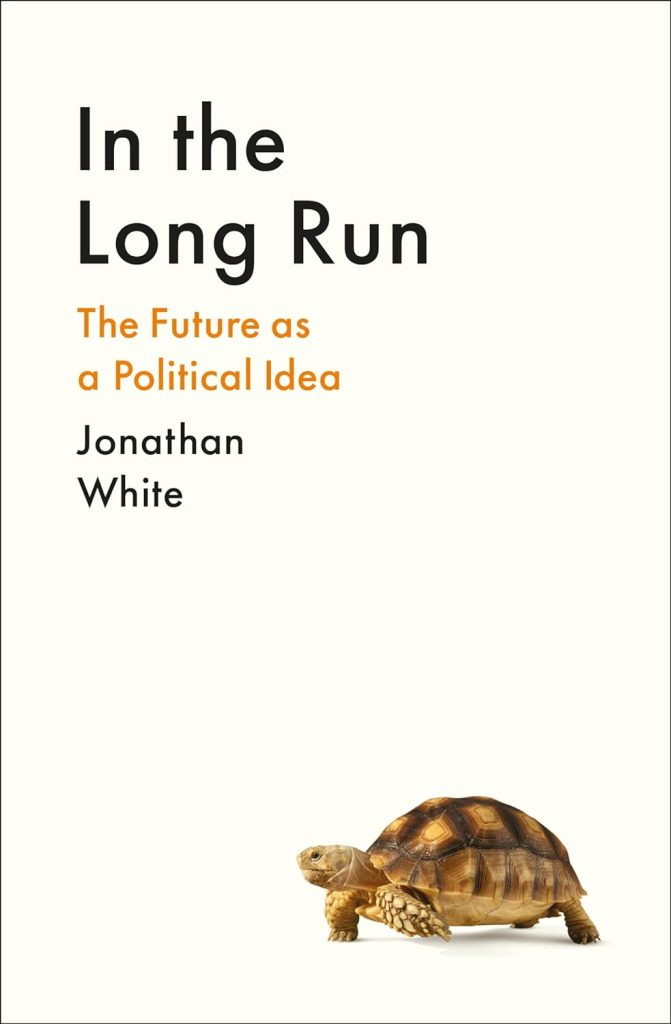fascism
Gordon Brown’s answer to poverty in the UK is to appeal to charity. When Labour looks like it will have a massive majority soon that is pathetic.
Gordon Brown, the former Labour Prime Minister, had an article in the Guardian newspaper yesterday that plumbed new depths for the Labour Party.
Brown acknowledged that the UK has a poverty crisis, with vast numbers of people having insufficient income to meet their needs. As he noted, one million children now live in what might properly be called destitution, because absolute poverty does not seem an adequate description.
Having wrung his hands over this, and inevitably seeking to blame the Tories, he claimed to have a plan to address the issue.
There were two parts to this plan. In the first, he suggested a tiny pruning of the amount of interest paid by the Bank of England to the UK’s commercial banks each year on the deposits that they supposedly hold with our central bank. These sums actually represent the new money supply created by the Bank of England on behalf of the government during the 2008/09 financial crisis and 2020/21 Covid crisis, which the commercial banks did, as a result, do literally nothing to earn.
Approximately £40 billion will be paid in interest on these accounts this year. Brown suggested that between £1 billion and £3 billion of this sum might be redirected towards addressing extreme poverty in this country.
Having made this totally feeble gesture when the opportunity to do so much more with this wholly inappropriate enrichment of bankers was available to him, he then added his second suggestion. He did not, as any reasonable left-of-centre person might have expected, suggest that companies and people with higher levels of income might pay more tax to address the inequality that we now face as a country. Instead, he appealed to their charitable instincts and suggested that if only they donated a little more to food banks, the whole problem might be solved.
I have already suggested today that Labour’s frank admission that it does not intend to do anything about the power of the private sector, or the inevitable fact that the private sector does not allocate rewards appropriately within society, is recognition on its part of creeping fascism, about which it very obviously has no intention of doing anything.
Brown reinforces my opinion that Labour has altogether given up on challenging inequality, the power of the private sector, and the power of private, wealthy individuals within our society. Instead, it does now seem that it will tolerate any outcome that the market now dictates, however, undesirable that is for the people of the UK as a whole.
You could describe this as Labour giving up on its fundamental purpose, and you would be right to do so.
You could alternatively suggest that this is Labour tolerating the creep of fascism into our society, and again I think you would be right to do so, although I am sure that Labour itself would disagree. But, when it is doing nothing to stop that advance of fascism, what right have they got to do so?
As I have said before today, and will no doubt be saying many more times over the months and years to come, I have shown that none of this is necessary. The Taxing Wealth Report demonstrates that the money required to tackle the problem of poverty in the UK could be raised by simply reforming some of the existing taxes within this country. This would be easy, especially for a party in power possessed of a massive majority, which Labour is likely to have. Quite literally, nothing could stop them from reshaping the way in which rewards are shared within our society for the benefit of that society as a whole.
If Labour are not willing to do that with the power that they are likely to have then what are they for? Apart from enabling fascism, that is.
It is essential that the state regulate the private sector if we are to avoid fascism. It looks as if both Labour and the Tories have abandoned this goal.
In April 1938, President Franklin D Roosevelt sent a message to Congress in which he said:
Unhappy events abroad have retaught us two simple truths about the liberty of a democratic people.
The first truth is that the liberty of a democracy is not safe if the people tolerate the growth of private power to a point where it becomes stronger than their democratic state itself. That, in its essence, is Fascism—ownership of Government by an individual, by a group, or by any other controlling private power.
The second truth is that the liberty of a democracy is not safe if its business system does not provide employment and produce and distribute goods in such a way as to sustain an acceptable standard of living.
There is obvious resonance in what he said for discussion on this blog this week because of the reference to fascism that he made.
His interpretation of fascism is worth noting. It is heavily influenced by the Italian understanding of fascism at that time. However, it should resonate very strongly at this moment. The idea that we have fascism when private power is more important than the state is of considerable significance.
So, too, however, is this idea when combined with his second team, which is that democracy is not safe if business thinks it acceptable to organise itself in a way that does not meet the needs of people.
Now, let me put this in the context of a current issue. As the Guardian notes this morning:
After regulator resists 40% increase in bills, [Thames Water] shareholders deny request for more money – raising prospect of nationalisation
The UK water industry is very clearly organising itself in a way that does not sustain an acceptable standard of living in this country. Roosevelt's second condition is met.
As significantly, so too is the first. Not only will the current Tory government not properly nationalise Thames Water, but neither will Labour. We know that the former is true because the Tories passed legislation, using statutory instruments, in January this year to protect the interests of shareholders in the event of the insolvency of a water company, with Thames Water clearly in mind. As the FT noted at the time:
[A] lawyer also warned that creditors might suffer bigger losses than they might have under the current regime.
Not only was it the Tory's intention to protect the powerful shareholders the Thames Water, but they were willing to do so at cost to creditors, including employees, pensioners, and those other businesses whose services it is essential that Thames Water retains if the company is to continue to meet the obligation to supply water to approximately one quarter of the people in the United Kingdom. The Tory indication was clear: in this power struggle, the shareholders of the dominant organisation have been deemed to hold all the cards, by law. This meets Roosevelt's first test.
I have two reasons to think that Labour will do nothing about this. The first is that yesterday Keir Starmer said:
I can’t pretend that we could turn the taps on, pretend the damage hasn’t been done to the economy – it has. There’s no magic money tree that we can waggle the day after the election. No, they’ve broken the economy, they’ve done huge damage.
It so happens that he was talking about funding for local authorities, but he might just as easily have been talking about the supply of money for another essential public service, which is the delivery of water on which, quite literally, the life of the UK depends. What he made clear is that he does not think that a Labour government will have the desire or willingness to command the resources to make good the problems that the Conservatives have created.
It is, of course, complete nonsense that the resources to fund both local authorities and the rebuilding of our water supplies do not exist. As I have shown in the Taxing Wealth Report 2024, up to £90 billion of taxes could be raised a year by taxing the wealthy more, simply by changing existing tax laws. In addition more than £100 billion could be raised a year to fund capital investment if only the rules on tax incentivised saving were changed. That has nothing to do with finding a magic money tree. It has everything to do with a government's capacity to tax, which Labour is clearly not willing to use in the public interest.
I have a second reason for thinking that Labour will not act, which is that sources within the party tell me that they are absolutely refusing to consider nationalisation and that the only option that they believe to be on the table is some form of repackaging of the existing company to keep it within the private sector.
Put these two factors together, and we can see that Labour also meets Roosevelt's first condition for the existence of fascism. It believes that the power of the private sector is greater than that of the state, even when it comes to something as fundamental as the supply of water on which we are all absolutely dependent. Its belief is that there is nothing you can do in reaction to the failure of a private sector entity, but bail it out and return it to private ownership. This is despite the fact that it is now glaringly obvious from evidence around the world that the only successful model for the supply of water to a nation is that it must be under public control.
The situation at Thames Water is scary enough. Our major political parties' response to it is, if anything, much more worrying still. What they are confirming is that, as far as they are concerned, the state has withdrawn from the regulation of the private sector and from the regulation of the supply of services critical to the well-being of people in this country. They are, in that case, effectively heralding the onset of fascism, to which they say they have no answer.
Roosevelt declared in his message to Congress that it was essential that the State regulate the private sector. That, he thought, was a fundamental role of the state. He suggested how he would do so to require that the private sector serve the public good. He concluded his message by saying:
No man of good faith will misinterpret these proposals. They derive from the oldest American traditions. Concentration of economic power in the few and the resulting unemployment of labor and capital are inescapable problems for a modern "private enterprise" democracy. I do not believe that we are so lacking in stability that we shall lose faith in our own way of living just because we seek to find out how to make that way of living work more effectively.
It would now seem that we lack any modern politicians, at least within our major political parties, who can even imagine having such a vision, let alone having the ability to deliver it. And that is why we are in very deep trouble.
We need voices in the mainstream media who are willing to call out fascism
Martin Wolf has this to say in today's FT:
Are we witnessing the return of fascism? Is Donald Trump, to take the most important contemporary example, a fascist? Is France’s Marine Le Pen? Or Hungary’s Viktor Orbán? The answer depends on what one means by “fascism”. But what we are now seeing is not just authoritarianism. It is authoritarianism with fascistic characteristics.
The article is worth reading if you can get behind the pay wall.
It is notable for including UKIP in the definition of parties of concern to Martin Wolf.
What is also telling is his conclusion, which I think it is fair to quote it in full given the significance of this issue:
The fascism of Germany or Italy of the 1920s and 1930s does not now exist, except perhaps in Russia. But the same could be said of other traditions. Conservatism is not what it was a century ago, as is true of liberalism and socialism. The ideas and concrete proposals of political traditions alter with society, the economy and technology. That is no surprise. But these traditions still have a common core of attitudes to history, politics and society. This is also true of fascism. History does not repeat itself. But it rhymes. It is rhyming now. Do not be complacent. It is dangerous to take a ride on fascism.
Martin Wolf is right. It is dangerous to take a ride on fascism. But that is very obviously what he thinks the world is doing, and so do I.
I also applaud the FT for having the courage to address this issue. We need voices in the mainstream media who are willing to call out fascism. There is far too much of it about. It is far too tolerated. It is profoundly dangerous. It is time that we recognised all these things.
Genocide cannot be condoned, whoever does it
This post on Twitter was made yesterday by this person:

He is the director of the UN aid agency in Gaza. It is the only agency able to reach the people there.
He said this:


The Israeli government has begun to use famine as an instrument war.
Please do not ask me to condone, tolerate, or ignore this.
And please do not tell me it is anti-Semitic to condemn that government and its Zionism that motivated this, because it is not.
Like those Jews who condemn this government - and very large numbers do - I stand up for humanity. Zionism can never excuse its abuse.
And please also don’t tell me this is only reaction to Hamas and 7 October. I have condemned what they did then many times. But nothing excuses the war crimes the Netanyahu regime is committing now, or those who supply it with arms. Genocide cannot be condoned, whoever does it.
Has the time come for sanctions to be imposed on Israel?
Cartoon: Flea marketplace of ideas
Follow me on Mastodon, Bluesky, Facebook, Instagram, or at my website.
No wonder so many politicians hate the arts in all their forms
Having waxed almost lyrical on the power of the written word in another post this morning on the power of writing, I am overdue to share this piece in a different medium from another creative friend, Mark Northfield:
As Mark said of this to me in an email:
This one is a musically symbolic classical instrumental with a very obvious ‘message’, developed from one of my rough homemade piano recordings posted back in March 2022.
It's a more fully realised and properly recorded trio arrangement entwining the official anthem of Europe - Beethoven’s ‘Ode to Joy’, of course - with the national anthem of Ukraine.
As the piece progresses, Russia’s invasion (and Putin’s imperial ambition) is noted with a brief use of Mussorgsky from ‘The Great Gate of Kiev’ movement of Pictures At An Exhibition. However, the two anthems resume with vigour and entwine once more with greater complexity, finishing the piece in defiance and determination.
Mark timed the release of this piece to mark the second anniversary of Russia’s invasion of Ukraine. I am late in sharing it. I do so now, noting again the idea that a person possessed of a powerful idea and the means to express it has real power. No wonder so many politicians hate the arts in all their forms.
What happens when the Prime Minister thinks that the electorate are extremists?
I posted this thread in Twitter last night:


 I then followed up with this:
I then followed up with this:

I am not sure that there is much to add barring these observations.
Sunak will not call out Braverman’s racism.
Or Anderson’s Islamophobia.
He won’t even describe Islamophobia as such, but will use the term anti-Semitism at any moment, often inappropriately.
He still claims the public wants his Rwanda policy which will punish people guilty of nothing except having fled other countries in fear.
His rhetoric on small boats is intended to create division, mistrust and fear in society, and is succeeding in doing so.
He will not condemn Netanyahu for genocide, which British policy is supporting.
And he is the person whose laws are already denying the right to protest whilst also denying the right to justify protest by stating the reason for it when being tried for the crime of, for example, waking slowly.
This is not a man who can talk about unity, reconciliation or common values when his modus operandi is to create ‘others’ to vilify.
In the Long Run: The Future as a Political Idea – review
Jonathan White‘s In the Long Run: The Future as a Political Idea examines how changing political conceptions of the future have impacted democracy, arguing that contemporary challenges like economic slowdown and climate change have led to reactive politics and short-termism. Though the book proposes ways to revitalise democracy, Aveek Bhattacharya suggests we may need to seek beyond our political institutions for strategies to build a more open future.
You can read an interview with Jonathan White about the book here. On Monday 11 March at 6.30pm White will speak at an LSE panel event, The politics of the future – find details and register here.
In the Long Run: The Future as a Political Idea. Jonathan White. Profile Books. 2024.
 In the Long Run: The Future as a Political Idea is a book about the history of the future, and what it means for the present. More precisely, it describes how the way people think about the future has evolved over time, and the impact of these changes on democracy. Jonathan White’s central argument is that while optimism for the future once helped build democracy, economic slowdown, climate change, new technology and geopolitical tension mean that “the future no longer seems its [democracy’s] friend”.
In the Long Run: The Future as a Political Idea is a book about the history of the future, and what it means for the present. More precisely, it describes how the way people think about the future has evolved over time, and the impact of these changes on democracy. Jonathan White’s central argument is that while optimism for the future once helped build democracy, economic slowdown, climate change, new technology and geopolitical tension mean that “the future no longer seems its [democracy’s] friend”.
For democracy to function, White observes, it is critical that people believe an “open future” is possible: that there are alternatives to the status quo, that society can evolve in a range of different ways, and that the people can choose between them. One of the key defining characteristics of democracy – the peaceful handover of power – is premised on changeability of the future: election losers believe that they will get their chance to achieve their vision of society again.
For democracy to function, White observes, it is critical that people believe an ‘open future’ is possible
In the present, White says, it is harder to maintain that patience and faith. The future is regarded with fear and claustrophobia. At various points he describes the future, far from being open, as “closing in”. Catastrophe – societal decay, conflict, environmental collapse – feels hard to avert. Insofar as there are options, they involve deferring to technocrats. There is a “now or never” urgency about politics, and a fear that waiting your turn means leaving it too late because the other side will destroy everything.
Via a tour of historical political thinkers, White sketches the ideas of the future that make for the most vibrant democratic system. Political and social outcomes must seem open, but not in such a destabilising manner as to trigger counter-revolution from those attached to the present. A strand of utopianism can be energising but must be linked to near-term political tactics to be practicable. Efforts to limit uncertainty, to render the future predictable, through calculation and technocracy risk squeezing out the necessary imagination and mass participation of vibrant democracy. At the same time, chaotic impulsiveness and pure disregard for expertise risks descending into fascism. Trying to control the future by keeping it secret is likely to generate conspiracy theories and discontent. Consumerism individualises the future and means we no longer share in it – we move from valorising Victorian steam trains to wanting our own personal cars.
Our perpetual state of emergency, while creating unpredictability, produces reactive politics, designed mainly to return things to the way they were.
The conception of the future we have arrived at today is not, in White’s opinion, sufficiently conducive to democracy. Our perpetual state of emergency, while creating unpredictability, produces reactive politics, designed mainly to return things to the way they were. Short-termism dominates – most notably, through the election cycle, but even longer-term threats like climate change are tractable only by converting them to benchmarks and deadlines. Managerialism and secrecy dominate, empowering organisations like the European Central Bank and the International Monetary Fund and triggering impulsive populist backlashes.
White’s proposals for rebuilding a more positive conception of the future and revitalising democracy are somewhat surprising. He is sceptical of direct democracy – while more referendums might give ordinary citizens more chance to shape the future, they raise the stakes and perpetuate the “all-or-nothing” politics he thinks is so baleful. Small-scale councils are too small-scale to create significant change, citizens’ assemblies too short-lived to pursue a persistent vision.
White calls for ‘radical representative democracy’, with mass participation in the development of party policy and party members having greater opportunity to recall politicians who fail to deliver on those agreed goals.
Instead, he puts his chips on political parties as the crucibles of a more inclusive, compelling and hopeful vision of the future. He calls for “radical representative democracy”, with mass participation in the development of party policy and party members having greater opportunity to recall politicians who fail to deliver on those agreed goals. It’s an argument with echoes of Peter Mair’s Ruling the Void, which also claimed that the disengagement of ordinary members and politicians from their political parties had led to “the hollowing of Western democracy”.
White’s rebooted party system sounds good in theory, but invites scepticism about its practicality. His central assumption is that citizens’ disempowerment is the root cause of our current democratic malaise, and that the opportunity for greater influence will suffice to tempt enough people to give up their evenings and weekends to political causes. It is not encouraging that the existing parties that have done most to engage with mass movements and improve participation with things like online platforms – Podemos in Spain and the Five Star Movement in Italy – do not seem to have restored democratic confidence in their countries.
The Victorian capitalists who built the factories and railroads may not have been personally attractive, but they inspired progressives and socialists to dream about how their innovations could be used to benefit all.
White is oddly dismissive of the pockets of optimism that do exist outside the political system – most notably Silicon Valley, where ideas like “Effective accelerationism”, the view that technological progress is likely to obviate many of our deepest societal challenges, has taken root. For White, they display the wrong sort of optimism: too consumerist and individualistic, too inclined towards anti-system chaotic thinking, tendencies encapsulated in the figure of Elon Musk, presented as fascistoid, if not fascist. Setting aside whether that is a fair characterisation of Musk, the question it raises is why the confidence of tech companies seems so divorced from the sentiments of wider society. The Victorian capitalists who built the factories and railroads may not have been personally attractive, but they inspired progressives and socialists to dream about how their innovations could be used to benefit all. There are some – figures like Aaron Bastani on the far left and Derek Thompson on the centre left – that are trying to do something similar today, but White does not recognise them as such.
White assumes that the problems of democracy are endogenous: that they are caused by political institutions and must be resolved by them.
Most fundamentally, White assumes that the problems of democracy are endogenous: that they are caused by political institutions and must be resolved by them. But there are more straightforward explanations for the modern morosity. Stagnant economic growth, and the failure of new technologies to demonstrably improve living standards, would naturally be expected to undermine confidence that things will improve. The demographic shift to an older population in rich countries may also have contributed to a lack of vitality and enthusiasm, and a tendency to look back with nostalgia rather than forward with hope. Even among the young, we should not necessarily take perceptions at face value. Phenomena like “climate anxiety” seem to reflect anxiety at least as much as they reflect the climate, and as such will often be psychological, not just political in nature.
That’s not necessarily a comforting thought. Maybe technological abundance is around the corner, maybe the economy will turn around, maybe the mental health crisis will abate – whether by sheer luck or unusually effective action – and people will start to feel better about the future. But In the Long Run suggests that fixing democracy’s problems, renewing our faith in the open future, is a much bigger task than tweaking its institutions.
This post gives the views of the author, and not the position of the LSE Review of Books blog, or of the London School of Economics and Political Science.
Image credit: Ryan Rodrick Beiler on Shutterstock
We really do need to wake up to the fact that theocratic fascism is threatening us all
I tried to summarise what follows and then decided to share it as it was written by Heather Cox Richardson because nothing I could say could add to it. I offer it as an admiring promotion of her free, family, newsletter, 'Letters from an American', to which you can subscribe here:
The Alabama Supreme Court on February 16, 2024, decided that cells awaiting implantation for in vitro fertilization are children and that the accidental destruction of such an embryo falls under the state’s Wrongful Death of a Minor Act. In an opinion concurring with the ruling, Chief Justice Tom Parker declared that the people of Alabama have adopted the “theologically based view of the sanctity of life” and said that “human life cannot be wrongfully destroyed without incurring the wrath of a holy God.”
Payton Armstrong of media watchdog Media Matters for America reported today that on the same day the Alabama decision came down, an interview Parker did on the program of a self-proclaimed “prophet” and Q-Anon conspiracy theorist appeared. In it, Parker claimed that “God created government” and called it “heartbreaking” that “we have let it go into the possession of others.”
Parker referred to the “Seven Mountain Mandate,” a theory that appeared in 1975, which claims that Christians must take over the “seven mountains” of U.S. life: religion, family, education, media, entertainment, business…and government. He told his interviewer that “we’ve abandoned those Seven Mountains and they’ve been occupied by the other side.” God “is calling and equipping people to step back into these mountains right now,” he said.
While Republicans are split on the decision about embryos after a number of hospitals have ended their popular IVF programs out of fear of prosecution, others, like Republican presidential candidate Nikki Haley agreed that “embryos, to me, are babies.”
House speaker Mike Johnson (R-LA) identifies himself as a Christian, has argued that the United States is a Christian nation, and has called for “biblically sanctioned government.” At a retreat of Republican leaders this weekend, as the country is grappling with both the need to support Ukraine and the need to fund the government, he tried to rally the attendees with what some called a “sermon” arguing that the Republican Party needed to save the country from its lack of morality.
As Charles Blow of the New York Times put it: “If you don’t think this country is sliding toward theocracy, you’re not paying attention.”
This madness is going on in the USA right now.
Liz Truss was speaking at a conference promoting this type of madness this week.
And then note this, reported by Harry Coles in the Sun, based on comments made by Boris Johnson to the same far-right think tank conference that Truss was speaking at. He said:
When you look back at Trump’s last term in office there is little doubt that the world felt safer and calmer and more stable. Right now much of the world is craving the stability that goes with strong and decisive American leadership.
So there we have Johnson playing straight into the fascist copy-book portrayal of the strong male leader as the saviour of the world.
Theocratic fascism is threatening us all. We really do need to wake up to it.
Late Fascism: Race, Capitalism and the Politics of Crisis – review
In Late Fascism: Race, Capitalism and the Politics of Crisis, Alberto Toscano unpacks the rise of contemporary far-right movements that have emerged amid capitalist crises and appropriated liberal freedoms while perpetuating systemic forms of violence. According to Dimitri Vouros, Toscano’s penetrating, theoretically grounded analysis is an essential resource for understanding and confronting the resurgence of reactionary ideologies.
Late Fascism: Race, Capitalism and the Politics of Crisis. Alberto Toscano. Verso. 2023.
 Observing the leftwing populism that emerged after the 2007 financial crash, a perceptive critical theorist may have predicted that this hope-inspiring movement would quickly be reintegrated into the neoliberal order. They might further have predicted that a counter-revolution would arise in the vacuum left by the failed leftist movement and as a reaction to continuing economic difficulties. Indeed, in the last decade the rise of the populist right has been both steady and near universal.
Observing the leftwing populism that emerged after the 2007 financial crash, a perceptive critical theorist may have predicted that this hope-inspiring movement would quickly be reintegrated into the neoliberal order. They might further have predicted that a counter-revolution would arise in the vacuum left by the failed leftist movement and as a reaction to continuing economic difficulties. Indeed, in the last decade the rise of the populist right has been both steady and near universal.
[Toscano] sets out to explain why the spectre of the extreme right is not merely haunting us, but gaining political purchase across the globe
In Late Fascism, Alberto Toscano, who has been instrumental in the resurgence of Marxist and materialist sociocultural analysis over the past twenty years, offers an important theory of fascism for our current historical juncture. He sets out to explain why the spectre of the extreme right is not merely haunting us, but gaining political purchase across the globe. The measured, lapidary style of Toscano’s argument, which draws on the 20th century’s “rich archives” of antifascist thought (155), most of it Marxist or marxisant, treats the deep, structural aspects of the political often ignored by other analyses. He does this by leaning on a style of literary-philosophical excavation and elucidation more often found in classical critical theory like that of Theodor Adorno and Walter Benjamin.
One of the marks of fascism is to amalgamate seemingly incompatible positions. Indeed, it is a complex phenomenon, “scavenging the ideological terrain for usable materials”, including many currents on the left (155). Toscano does not follow mainstream political theory in conflating fascism with totalitarianism, command economies, and brute force. He argues that late fascism is “disanalogous” with historical fascisms. Instead, he focuses on the implicit forms of violence and repression – colonial, racial, sexual, and gender-based – that inform late fascism. This kind of hidden violence becomes especially noticeable, and acute, when capitalism faces financial and other crises.
As well as developing the idea that reactionary ideologies emerge out of capitalist crisis, notably as the co-option of working-class movements by the right as soon as the opportunity arises, Toscano notes the role capitalist exchange relations play in the epistemological foundation of fascist-adjacent ideologies. Yet the most original thesis in the book is that the touted freedoms of liberalism and free-market capitalism are also appropriated by late fascism. In fact, late fascism is only nominally attached to liberal ideals such as “individual action” and “free speech”. Its claim to be on the side of the individual and their political agency is clearly false, its objective really being to reproduce prior forms of subjection and create new forms of subjugation. Jessica Whyte has also suggested a similar dissimulation in the neoliberal support for human rights.
The rapid rise of this ideology may also be tied to online culture, although Toscano avoids elaborating on the political ramifications of this development. Instead, he gives a historical outline of classical Marxist arguments against reactionary thought and movements. As the subtitle of his book indicates, understanding the ideology of the far right must include a theory of the systemic reproduction of colonialism, racism and sexism. Toscano writes, “Whoever is not willing to talk about anti-capitalism should also keep quiet about anti-fascism” (158). Yet understanding fascism as a tendency within capitalism that merely continues what critical theory calls “identity thinking” is part of a critical venture “inseparable from the collective forging of ways of living that can undo lethal romances of identity, hierarchy and domination that capitalist crisis throws up with grim regularity” (158).
Understanding the ideology of the far right must include a theory of the systemic reproduction of colonialism, racism and sexism
Four key ideas explain late fascism. Firstly, it “cannot be understood without the “fascisms before fascism” that accompanied the imperialist consolidation of a capitalist world-system”, namely, the political and economic domination of the world by Europe, peaking in the 18th and 19th centuries, made possible by the material exploitation of its various colonial strongholds. Secondly, it can only be understood “across axes of race, gender and sexuality”. Thirdly, it includes the “desire for ethnonational rebirth or revanche stoked by the imminence of a threat projected as civilizational, demographic and existential”. Lastly, it involves “the production of identifications and subjectivities, desires and forms of life, which do not simply demand obedience to despotic power but draw on a sui generis idea of freedom” (156-57). These four aspects of late fascism are developed in some detail with a breadth that will satisfy anyone interested in the history of antifascist thought and resistance.
Each chapter provides a different window onto the ideology of fascism and explains why understanding it is imperative. The first chapter looks at the temporally destabilising aspects of fascist ideology, with its archaisms, anachronisms, and wrong-headed projections of majestic, uncorrupted futures. The second focuses on the dynamics of capitalism and race, mainly how the Black liberation struggles of the 1960s provide a template for understanding the racial nature of capitalism, with its continuing repression of minorities and punitive carceral system. The third chapter provides an overview of how the populist right appropriates the classical liberal understanding of individual freedom and toleration for its own purposes. It inverts such individualism, supporting the dominant narrative of equality; namely, the freedom to accumulate property and social power (the latter being skewed along racial and sexual lines, ie, white, male or heteronormative).
The fourth chapter, the most difficult, looks at the political subterfuge manifested by the “real abstractions” within a totalised exchange society. The references to Alfred Sohn-Rethel and Henri Lefevbre are especially illuminating. These latter two authors argue that capitalist ideology views everyday social relations upside down, as first pointed out by Marx in his theory of commodity fetishism and alienation. The central point is that the ends of capital and profit are prioritised over labour, the labourer being merely a commodity on the market, and ensuring capital accumulation.
Toscano demonstrates how the ‘scavenger ideology’ of fascism, which draws on Romanticism, political decisionism, a fascination with technology, and even socialism, is a pressing danger.
The fifth chapter deals again with temporality but this time through the philosophical understanding of “repetition”. Toscano singles out and censures Martin Heiddeger’s fundamental ontology”, which is concerned with “being” and the naturalised historical subject, as leading to a reactionary, “counter-revolutionary” politics. Toscano demonstrates how the “scavenger ideology” of fascism, which draws on Romanticism, political decisionism, a fascination with technology, and even socialism, is a pressing danger. This danger is magnified by its ability “to weaponise a kind of structured incoherence in its political and temporal imaginaries, modulating them to enlist and energise different class fractions, thereby capturing, diverting and corrupting popular aspirations” (110).
Based on a reading of the writings of the Italian Germanist and mythologist Furio Jesi, the sixth chapter deals with the far right’s version of the philosophy of religio mortis, a fascination with myth, sacrifice, and death, but updated for a technological (and now digital) era. Drawing on the idea of a “micropolitical antifascist struggle”, as found in the works of Gilles Deleuze, Felix Guattari, and Michel Foucault, the last chapter deals with the ambivalent erotics of fascist ideology, arguing that the libidinal introjection of violence reinforces various forms of social power. Here, Toscano also draws on the feminism of Maria Antonietta Macciocchi, claiming that the Nazi “antipolitical politicization of women” (148) resonates with current modalities of “fascist feminism” that seek “to violently secure and affirm a normative, if not necessarily heteropatriarchal, figure of woman, and which invests desire and libido in its narratives about the imminent threat of the erasure of women and even feminism by ‘gender ideology’ and ‘transness’” (150).
Toscano’s archaeology of 20th-century antifascist theory is an essential springboard for understanding the current political moment. It is a boon for those thinkers and activists interested in human emancipation and the struggle for real, rather than merely abstract, freedom. It alerts them to the threat posed to such projects by that deeply prejudicial ideology that arises alongside capitalism in crisis – late fascism.
This post gives the views of the author, and not the position of the LSE Review of Books blog, or of the London School of Economics and Political Science.
Image credit: Alexandros Michailidis on Shutterstock.